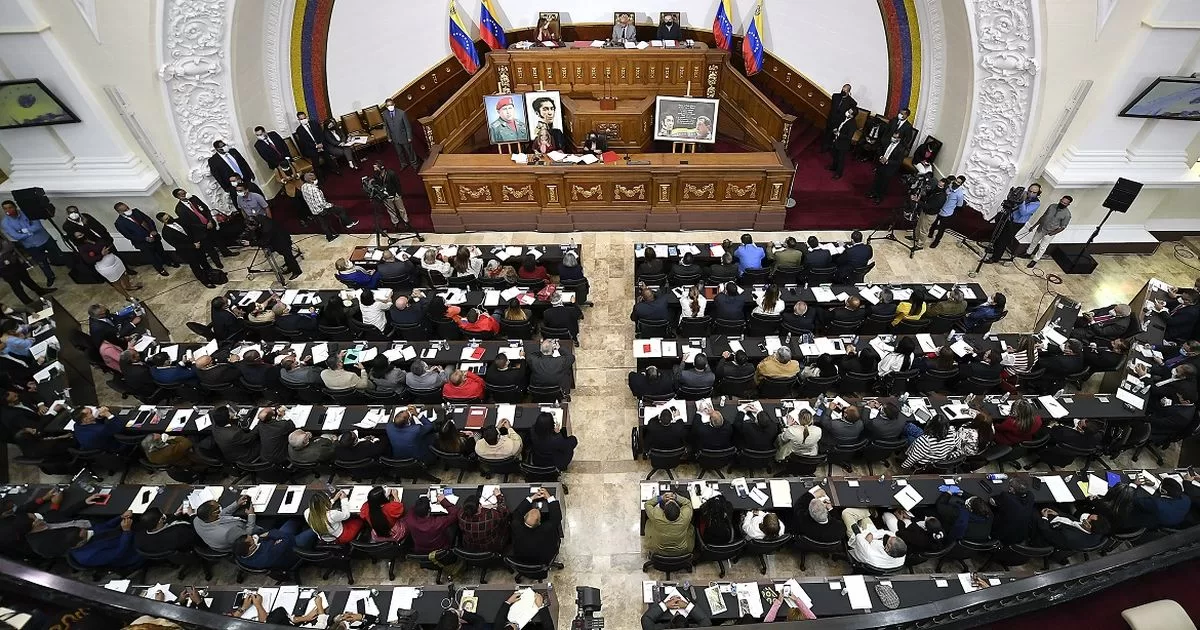Posad-Pokrovske.
The residents of the Ukrainian village of Posad-Pokrowske live in ruins and are not giving up hope – also thanks to help from Germany.
It’s like a miracle. In the walls and door of the little church there were countless holes from the sharp, heavy shrapnel. The wall of the baptismal room is smashed. But the icons in the dark, vaulted interior have been spared. Father Viktor Vasilyevich Kravchuk stands in front of one of the holy images, amazed, as if he still can’t believe that his church was not completely destroyed like so many other buildings in Posad-Pokrowske when the war reduced his small village to rubble.
“Blessed are the merciful, for they shall receive mercy,” he says, his breath becoming a white cloud. In this dark time, on this cold December day, a little hope came to the people of the settlement in southern Ukraine. An aid transport, co-financed by the Funke media group, to which this newspaper also belongs.
Ukraine War: Hundreds of projectiles hit Posad-Pokrowske every day
Posad-Pokrovske is a street village between Kherson and Mykolaiv. Around 2,400 people lived here on both sides of the M14 before the start of the Russian invasion, many of them in simple, one-story houses surrounded by gardens that are lost in the barren steppe landscape. In March, Russian troops entrench themselves on a rise to the east, using an open canal system to protect their tanks and howitzers.
In the village, Ukrainian soldiers take up positions. Then a month-long struggle begins. Hundreds of projectiles hit Posad-Pokrowske every day. In the first few weeks, many of the residents hold out in cellars, then most flee. Stay between 30 and 40, not all survive. The village has reported 15 deaths.
Posad-Pokrowske: A hostile place – but some are returning
In November, Russian forces withdraw. Ruins remain in Posad-Pokrovske. The school, the kindergarten, the large cultural center, the three gas stations, the cooking oil factory, almost all the houses have been destroyed. A few weeks later we visit the village for the first time. There is no electricity, no running water, no gas, and many duds are left over from the fighting. Posad-Pokrowske is a hostile place, and yet some of the residents have returned.
Also read:Fear for Sergey (46): “Russians kidnapped my son”
On our first visit, we meet Father Viktor at the small, light-blue church in front of the cemetery. He appraises the damage to the inconspicuous church, whose onion dome is not gilded like in other, wealthier villages. The priest is a strong man, 61, with long hair and a bushy beard, typical of Orthodox clergy. He has put on a camouflage jacket over his work clothes. Father Viktor has been the minister of Posad-Pokrowske for almost three decades. In recent years, his church has not been particularly well attended, with no more than thirty villagers attending the services.
“Whoever sat in the basement prayed to God.”
The war has put his faith to the test, says the priest. “But then, thank God, I realized that the Lord is not worrying us more than we can bear.” He also says the villagers were begging for divine help when the first shells hit Posad-Pokrovske. “They told me that when there were terrible explosions, they prayed to God. Anyone who sat in the basement prayed to God.” In mid-March, father Viktor fled with most of the other residents to Winnyzia, a good 500 kilometers further north-west.
Those who stayed in the village despite the fighting tell of the horrors, the deprivation and the dead. They also report on a young man who has taken care of them all these months, who has repeatedly traveled the 220 kilometers to Odessa to organize food, medicine and other relief supplies for them: Oleh Dolholutskyi. We meet him at his mother Olga’s house. He repairs the destroyed roof with friends. Dolholutskyi is 38, has steel blue eyes, wears a baseball cap.
During the fighting, no aid organizations stayed in town
He’s not a man of big words. In April, he says, he returned to the village to get a bag with documents and cash that he had forgotten when he fled. “I saw that people stayed and I wanted to help them.” Aid organizations don’t visit the village during the fighting, it’s just too dangerous. So Dolholutskyi drives, always bringing his people what they need to survive. His car is parked next to his house across the street, it’s full of bullet holes, the windshield is smashed.
We are deeply impressed by his courage and the perseverance of the population and promise to come back, support the village and bring relief supplies. Dolholutskyi smiles wearily. He knows the promises.
Ukraine Crisis – The most important news about the war
Survive in winter: A Norwegian aid organization is helping
Back in Germany, an aid campaign begins in which people from different countries are involved. The Caritas refugee aid in Essen and the local Caritas city association are providing 15,000 euros. Julia Becker, Chairwoman of the Supervisory Board of the Funke Media Group, increases the amount by 40,000 euros.
Also read:Ukraine: This is how people try to celebrate Christmas
A businessman in Iraq recommends a businessman friend of his in the Moldovan capital Chisinau who can organize cheap generators, batteries, power banks, solar lights and chainsaws. Team Humanity, a Norwegian aid organization that has been bringing people from the war-torn regions of Ukraine to the Republic of Moldova since the beginning of the war, has agreed to provide an ambulance to transport the relief supplies. A Ukrainian journalist organizes food packages in Odessa.
Transport with relief supplies is stopped at the border
On December 16, the transport stopped at the Moldovan-Ukrainian border crossing at Palanca. It’s ten o’clock at night. A Ukrainian customs officer complained that the villagers had to send a letter requesting help because there was no paper. “I can’t let you through,” he says firmly, explaining that alleged relief supplies have repeatedly appeared on the black market in Ukraine in recent weeks. That’s why writing is needed. The village is destroyed, there is no electricity, so how are people supposed to write a letter, especially at this time of day? “I have my orders,” the officer says apologetically.
Hours of tough negotiations and fruitless phone calls pass. At four o’clock in the morning we tell the man that if the Ukrainian authorities don’t want us to distribute relief supplies to those in need in Ukraine, then they should do it themselves and start unloading the ambulance. When the relief supplies piled up at the border crossing, hectic broke out. A few minutes later we get the green light to continue our journey.
Possad-Pokrowske: A construction crew is supposed to support the residents
In Odessa, the port city on the Black Sea, another transport arrives, filled with fuel for the generators and food packages. In the early afternoon of December 17 Posad-Pokrowske was reached. Father Viktor is standing in the middle of a crowd in front of the small village church. Oleh Dolholutskyi has told the other villagers to go there for the distribution. He beams as the ambulance pulls up.
Also read:War in Ukraine: Why peace is still far away
Among those waiting is Victoria Kyrilenko, 45. She is wrapped up thickly, like the others here, it has become bitterly cold. “We came back a month ago,” she says, and that everyday life in the village is difficult, as destroyed as it is. “We’re trying to clean up the ruins, but we can only work until dark. Then we sit by candlelight and heat our stove with the wood from the rubble. We also cook on the stove.”
Kyrilenko has heard that a construction crew will soon come to the village to support the residents. “We are now preparing to provide these people with food in the morning and in the afternoon. We collect dishes and clean rooms where they can rest.”
“I believe that something can be restored here”
The distribution begins, it’s a bit chaotic, people are jostling in front of the vans. Some are afraid of not getting anything. Dolholutskyi is uncomfortable with this, he scolds his people. However, together with Salam Aldeen, the leader of Team Humanity, he manages to distribute the relief supplies in such a way that almost everyone is satisfied.
When it was already getting dark, Oleh Dolholutskyi was sitting in a friend’s kitchen. A generator is humming outside, and a pot of borscht is bubbling on the stove. The 38-year-old looks more relaxed now. After a vodka, he says: “I also thought about going to Odessa and staying there.” Something is stopping him. “I believe that something can be restored here and it is possible to make it even better than it was.” Today is a signal of hope for him and the other villagers.
The dark streets are to be illuminated with solar lights
Dolholutskyi has plans. He wants to put the water supply back on with the other residents and one of the large generators that have been delivered. The smaller generators are distributed in such a way that people can easily reach them to charge their power banks. The dark streets are to be illuminated with the solar lights. Perhaps, he muses, they will also celebrate the New Year and Christmas on January 6th. “We still have a Christmas tree. He survived despite shells falling all around him.”
A week later, Dolholutskyi sent a video showing one of the glowing solar lamps. The village has become a bit brighter.
Ukraine war – background and explanations for the conflict
More articles from this category can be found here: Politics


